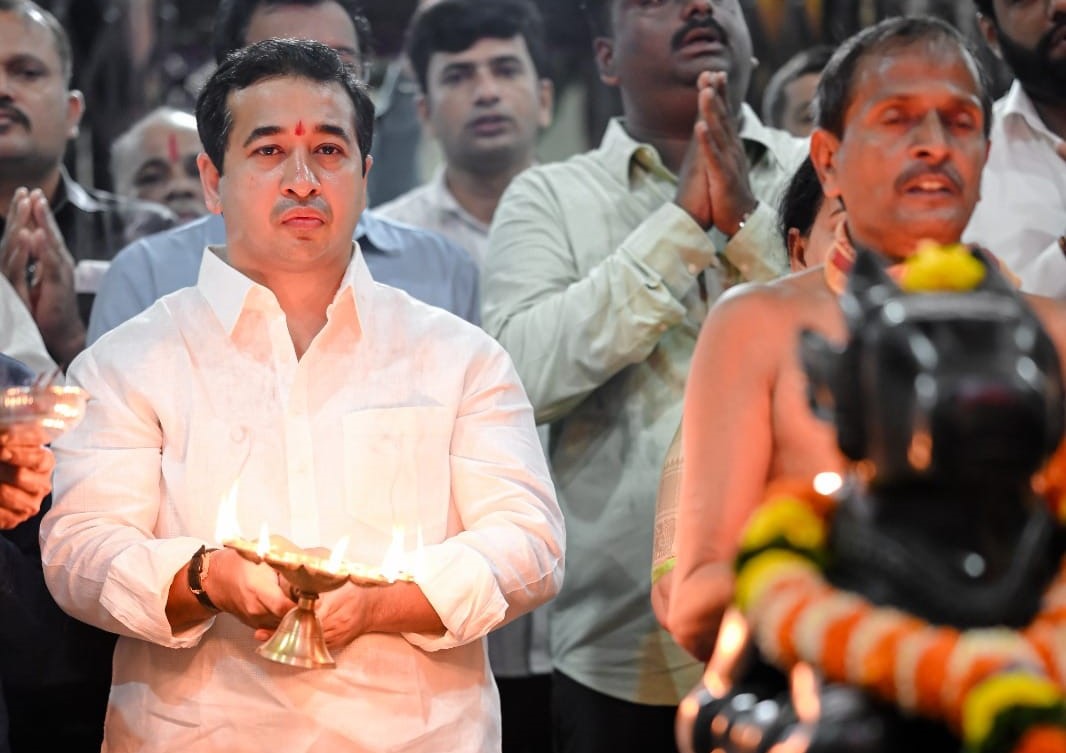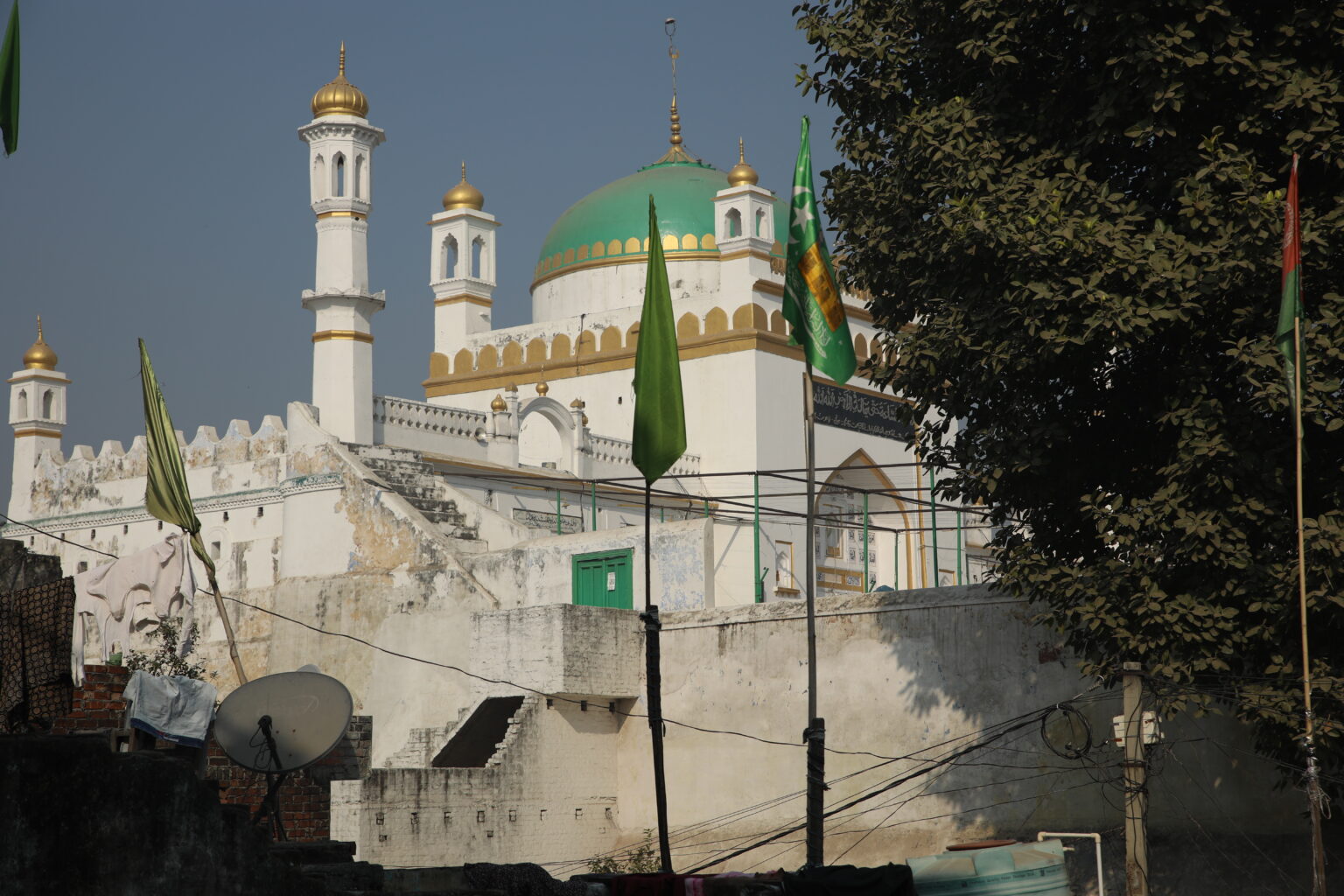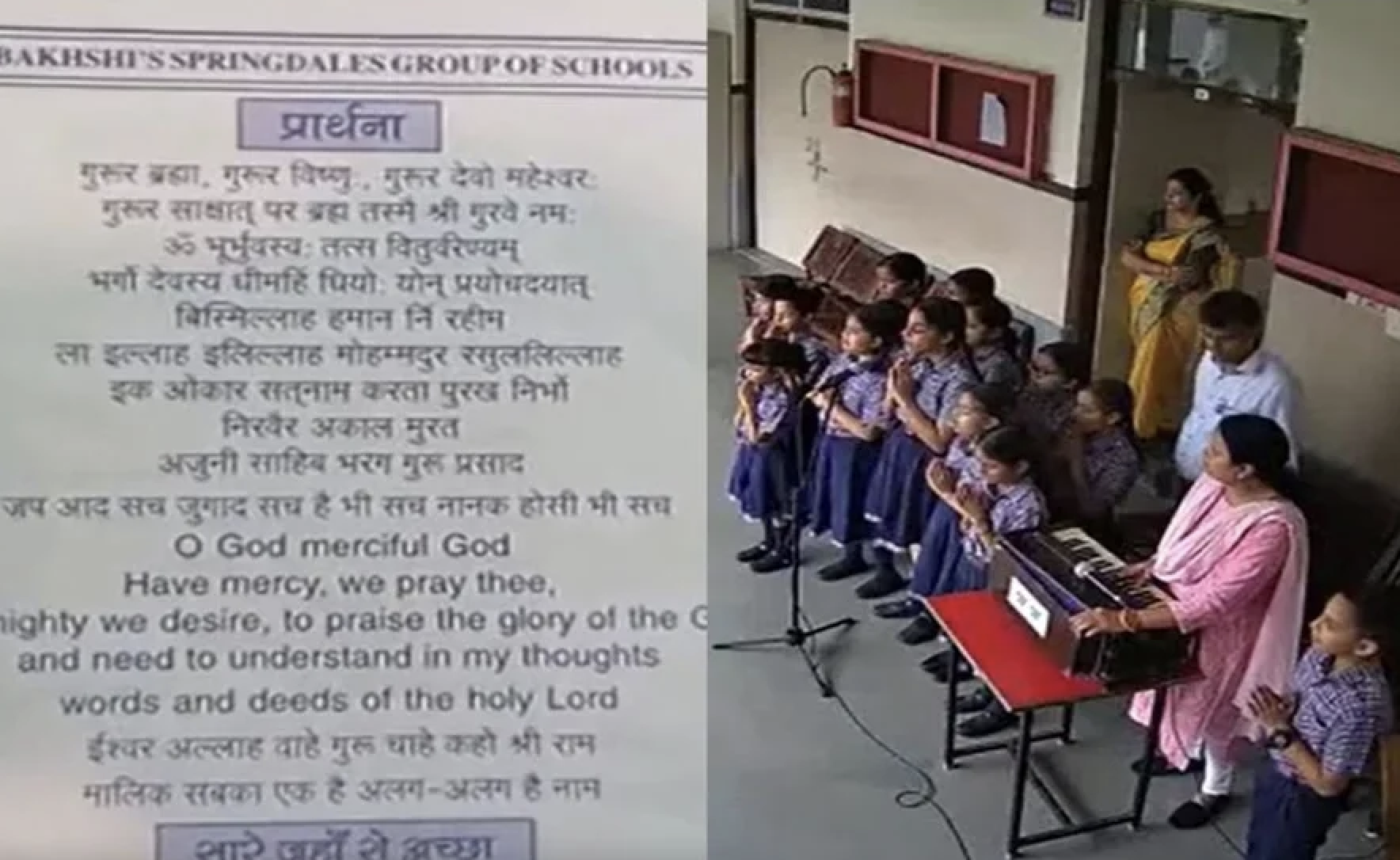By and
Last summer, the Illinois General Assembly passed legislation establishing an Indian American Advisory Council that advanced an Islamophobic agenda and sowed enmity within the South Asian-American community. The legislation codified principles of the increasingly influential Hindu supremacist hate ideology, violated church-state separation by valuing certain faiths at the expense of others, and promoted the domination of India over other countries in South Asia.
Joining together with a multi-racial, multi-faith coalition led by South Asian-American and Asian-American community leaders, we worked to educate legislators about the Hindu supremacist falsehoods in the text, and in February, Gov. J.B. Pritzker signed a follow-up bill that addressed nearly all of our key concerns. Despite this win, we are deeply concerned about the Hindu supremacist movement’s ability to co-opt representation and progressive leaders across the U.S. As a coalition, we document our experience in Illinois to help policymakers and allies effectively engage with South Asian-American communities while centering democracy, inclusion, and justice.
The backstory
Little known to non-South Asian-American communities in the U.S., Hindu supremacy and Hindu nationalism are growing threats both in India and here in the U.S.
Leading India since 2014, the Rashtriya Swayamsevak Sangh (RSS), a violent Hindu supremacist organization whose leaders were inspired by Hitler and Nazism, is working to replace India’s secular state with a Hindu supremacist state that upholds the millennia-old Brahmanical caste system. The government has not prosecuted calls for genocide against Muslims; it has quelled political dissent and suspended the fundamental rights of protesters, including Sikh-led social protests; and it has openly targeted Christian churches and communities. Mohandas Gandhi was assassinated by a former member of the RSS, Nathuram Godse. In India today, statues are built to idolize Godse, and a city may be renamed in his honor.
The RSS’ vision is global. It includes conquering countries in South Asia and has extended its influence abroad through the Hindu Swayamsevak Sangh (HSS). Its archaic vision embraced the “Aryan race” and fascism, and its caste system was admired by white segregationists in the U.S.
This ideology has imported extremist Hindu supremacist leaders, including pioneers of hate speech in India, and fundraised in the U.S. for the destruction of churches in India.
Chicago, with the U.S.’ second largest Indian-American community, has become home to a white supremacist-Hindu supremacist alliance facilitated by organizations like the Illinois-based “Republican Hindu Coalition” (RHC), which named white supremacist Steve Bannon an honorary chairman in 2019. Moreover, this movement worked with the Consul General of India to defeat a pro-democracy, pro-equality Chicago City Council resolution celebrating India’s Republic Day in 2021.
What happened in Illinois?
Unfortunately, most Illinois legislators were uneducated about this backstory when the Illinois General Assembly established the Illinois Indian American Advisory Council in 2022. The unprecedented council used language that codified a Hindu supremacist vision in three ways:
First, the text created an Islamophobic, religious hierarchy defining our community through religion. Rather than defining Indian Americans in terms of their geographic heritage (“a person descended from India”), the text used an exclusionary reference to faith: “‘Indian’ means a person descended from any of the countries of the subcontinent that are not primarily Muslim in character.” The implication was that only Hindus (the majority faith in India) belonged; a parallel might be passing legislation referring to German Americans as “not primarily Jewish in character.” Given that expelling and suppressing Muslims is a central objective of the RSS and its affiliates, the advisory council’s conflation of India with Hinduism undermined India’s secular ethos and marginalized non-Hindu faith communities in service of Hindu supremacy.
Second, the text advanced a Hindu supremacist vision of a “Greater India” that subsumes all other South Asian countries. The text deemed the independent countries of Bhutan, Nepal, and Sri Lanka “Indian” countries—an offensive, illogical, and unfounded statement. A parallel might be referring to all Latinx communities as “Mexican” or referring to Ireland as a “British-majority” country. Many in our community expressed the harm they felt. While Hindu supremacists benefited from legitimizing “Greater India,” the text damaged our local communities.
Third, the bill omitted language to ensure the council was diverse and representative. Stating the council “is diverse with respect to race, ethnicity, age, gender, and geography” explicitly excluded faith, caste, language, and sexual orientation—critical markers of diversity for the community. These dimensions are enormously significant as India is a nation with more than 200 million individuals of non-majority faiths; systemic caste-based violence; more than 700 languages and thousands of dialects; and a precedent of opposing same-sex marriage. A council charged with advising Illinois’ governor about community needs should have embraced diversity on these critical dimensions.
Despite the unambiguous failures outlined here, Illinois, with Democratic supermajorities in the House and Senate and an outspokenly progressive governor, legitimized a Hindu supremacist worldview in passing this act.
Our response
With a diverse coalition of South Asian Americans, we engaged with state representatives, state senators, and the governor’s office to educate them about the failures of the original bill.
Through this process, we learned the bill’s main sponsor was Republican state Rep. Seth Lewis, that no community consultations had taken place to discuss the advisory council, and that progressive legislators had not read the text of the bill. Some even publicly acknowledged their mistake.
Our demands were clear:
- Carry out inclusive community consultations about the council.
- Correct flaws in the text (highlighted above).
- Unite our community and build a broader base of political power by making this an inclusive South Asian American Advisory Council (rather than one that divided us by heritage or faith)
- Make no appointments until new legislation was passed.
- Ensure appointments captured the diversity of our community, including dimensions of religion, country of origin, caste, language, and sexual orientation.
After months of advocacy, legislators accepted the above demands but refused to include a reference to caste citing vague, legal technicalities. This again underscored the critical need for ongoing public education and action, particularly about caste discrimination within South Asian-American communities. In February 2023, Gov. Pritzker signed the amended text into law.
Educate your communities
Community leaders and elected officials in the U.S. are poorly educated about the RSS and Hindu supremacy. Recent developments from across the U.S.—including attacks on scholars, a Georgia state bill condemning “Hinduphobia”, and a similar legislative effort in Fremont, California—demonstrate the RSS’ ability to spread its Brahmanical, Hindu supremacist vision across the U.S.
Despite this, our efforts join a wave of recent successes in the U.S. and Canada, where organizations and grassroots movements have educated leaders and communities on this issue, leading to bans against caste discrimination, canceling Hindu supremacists’ appearances in the U.S., and revoking proclamations supporting the HSS. These successes are a result of the progressive community listening and acting to stop the RSS’ anti-democratic, anti-rights agenda. With senior political leaders in the U.S., Canada, the U.K., Ireland, and Scotland of South Asian heritage, we are certain this issue will only grow in prominence. Moving forward, it is critical to center democracy, justice, and equality in policymaking related to the South Asian community to ensure Hindu supremacy does not co-opt progressive values, leaders, and spaces around the world…






